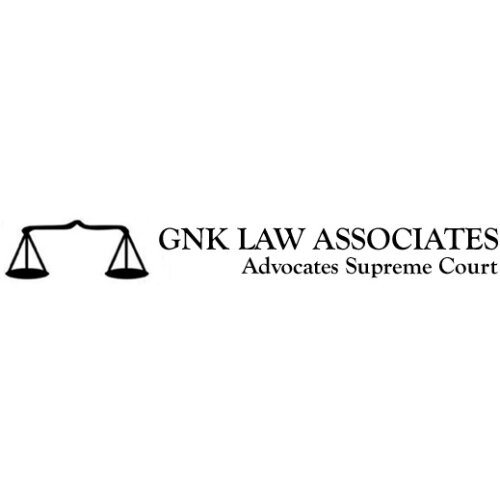Best Banking & Finance Lawyers in Delhi
Share your needs with us, get contacted by law firms.
Free. Takes 2 min.
List of the best lawyers in Delhi, India
About Banking & Finance Law in Delhi, India
Banking and finance law in Delhi, India, encompasses a wide array of regulations and legal frameworks that govern financial institutions, transactions, and the financial market. Delhi, being the capital city, is a significant hub for financial operations within the country, housing numerous banks, non-banking financial companies (NBFCs), and international financial institutions. The legal landscape here is primarily governed by national legislation, supplemented by rules and regulations from the Reserve Bank of India (RBI), Securities and Exchange Board of India (SEBI), and other pertinent regulatory bodies.
Why You May Need a Lawyer
The landscape of banking and finance can be complex, and there are numerous scenarios where you may require legal assistance. These situations include: navigating loan agreements, resolving disputes with financial institutions, understanding regulatory compliance, tackling insolvency issues, entering into investment contracts, and dealing with fraud or financial misconduct. A lawyer can provide crucial guidance and representation in these matters to protect your interests and ensure compliance with the law.
Local Laws Overview
Several key legal frameworks govern banking and finance in Delhi. The Banking Regulation Act, 1949, provides the statutory framework for the operation of banks. The Reserve Bank of India Act, 1934, delineates the functions of the central bank which oversees financial regulation. The Securities Contracts (Regulation) Act, 1956, oversees trading on securities markets, while the Insolvency and Bankruptcy Code, 2016, addresses insolvency resolution across entities. Alongside these, various other RBI notifications and circulars, SEBI guidelines, and local state laws also apply, making compliance a multidimensional task.
Frequently Asked Questions
What is the role of the Reserve Bank of India in banking regulation?
The Reserve Bank of India (RBI) functions as the central bank and is pivotal in regulating banks, formulating monetary policy, and ensuring financial stability in the country.
How can I resolve a dispute with my bank?
If you have a dispute with your bank, you can approach the bank's grievance redressal mechanism. If unsatisfied, you can escalate the issue to the Banking Ombudsman, or seek legal advice for further action.
What is an NBFC and how is it different from a bank?
Non-Banking Financial Companies (NBFCs) are financial institutions that offer various banking services but do not hold a banking license. They are regulated by the RBI but differ as they cannot accept demand deposits or issue cheques drawn on themselves.
How does the Insolvency and Bankruptcy Code affect individuals and businesses?
The Insolvency and Bankruptcy Code, 2016, streamlines and simplifies the insolvency process for individuals, partnerships, and corporates, thereby providing a clear, time-bound process to resolve insolvency.
What laws apply to investment transactions in Delhi?
Investment transactions are primarily regulated by the Securities and Exchange Board of India (SEBI) and include laws such as the Securities Contracts (Regulation) Act, 1956, and the SEBI Act, 1992.
Are digital and electronic transactions regulated by specific laws?
Yes, digital and electronic transactions are governed by the Information Technology Act, 2000, which provides legal recognition for transactions carried out by means of electronic data interchange and other electronic means of communication.
What should I know about consumer rights related to finance?
Consumers are protected under the Consumer Protection Act, 2019, which ensures transparency, prevents fraud, and addresses grievances related to financial services among other consumer rights.
How can borrowers protect themselves against unfair lending practices?
Borrowers should ensure they fully understand loan terms, interest rates, and fees, and should seek legal advice if they suspect unfair lending practices, such as misrepresentation of terms or exorbitant interest rates.
What is the process for insolvency resolution in India?
Insolvency resolution involves stages like the identification of default, application for insolvency, appointment of an insolvency professional, formulation of a resolution plan, and approval by the judicial authority, as outlined in the Insolvency and Bankruptcy Code.
How do banks ensure compliance with anti-money laundering laws?
Banks follow guidelines under the Prevention of Money Laundering Act, 2002, which mandate the maintenance of records of transactions, verification of client identity, and reporting of suspicious transactions to safeguard against money laundering.
Additional Resources
For further legal advice and information, you can contact the Reserve Bank of India, the Securities and Exchange Board of India (SEBI), or the Banking Ombudsman. Law firms specializing in financial law, legal aid clinics, and consumer protection agencies can also provide assistance.
Next Steps
If you need legal assistance in banking and finance, start by consulting with a qualified legal advisor or law firm specializing in banking and finance law. Prepare all relevant documents and transaction records, and clearly outline your issues or queries. This will help your legal advisor provide tailored advice and representation for your specific situation.
Lawzana helps you find the best lawyers and law firms in Delhi through a curated and pre-screened list of qualified legal professionals. Our platform offers rankings and detailed profiles of attorneys and law firms, allowing you to compare based on practice areas, including Banking & Finance, experience, and client feedback.
Each profile includes a description of the firm's areas of practice, client reviews, team members and partners, year of establishment, spoken languages, office locations, contact information, social media presence, and any published articles or resources. Most firms on our platform speak English and are experienced in both local and international legal matters.
Get a quote from top-rated law firms in Delhi, India — quickly, securely, and without unnecessary hassle.
Disclaimer:
The information provided on this page is for general informational purposes only and does not constitute legal advice. While we strive to ensure the accuracy and relevance of the content, legal information may change over time, and interpretations of the law can vary. You should always consult with a qualified legal professional for advice specific to your situation.
We disclaim all liability for actions taken or not taken based on the content of this page. If you believe any information is incorrect or outdated, please contact us, and we will review and update it where appropriate.
Browse banking & finance law firms by service in Delhi, India
Delhi, India Attorneys in related practice areas.













